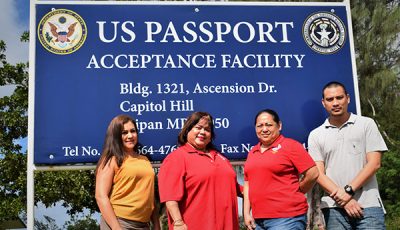State Department to host TechCamp Young Pacific Leaders for Climate Action in 2022
WASHINGTON D.C.—The U.S. Department of State, in partnership with Cultural Vistas, announced yesterday it will host TechCamp Young Pacific Leaders for Climate Action in 2022 in Auckland, New Zealand. The U.S. Department of State is investing $315,000 in this TechCamp.
TechCamp Young Pacific Leaders blends two of the many U.S. government initiatives in support of the Indo-Pacific and young leaders across the region. The TechCamp will create connections among Pacific scientists and science communicators and their counterparts in the United States to support collaboration on climate change response while building a comprehensive understanding of and practical technical skills on various considerations needed to pursue climate resiliency and approaches to addressing the effects of climate change. This initiative is one of many that the U.S. government is supporting to tackle the climate crisis in the Pacific region.
“Pacific island nations know better than anyone that averting the worst of climate change is going to save lives,” said U.S. President Joe Biden during his virtual address at the Pacific Islands Forum last August. “…If we don’t [do anything], we’re going to lose a lot of lives. You’re already feeling the impact of having to adapt. The United States is committed to dramatically reducing our emissions by 2030 and building resilience into vulnerable communities globally.”
The idea of a TechCamp arose from a need identified by participants at the Young Pacific Leaders 2021 conference earlier this year, virtually hosted in Papua New Guinea. Young Pacific leaders expressed a need to better communicate scientific concepts, both Western and indigenous scientific information, to the public with a specific focus on climate change and public health.
“We’re excited to support this initiative of Young Pacific Leaders, giving them the tools and connections to address the biggest challenges of our time and to integrate the latest climate science into development planning and implementation across all areas of work,” said Kevin Covert, acting U.S. ambassador to New Zealand, the Cook Islands, Niue, and Samoa.
The Young Pacific Leaders Initiative focuses on strengthening leadership development for emerging leaders in Australia, the Cook Islands, Fiji, the Federated States of Micronesia, the islands of French Polynesia, Kiribati, the Marshall Islands, Nauru, New Caledonia, New Zealand, Niue, Palau, Papua New Guinea, Samoa, Solomon Islands, Tonga, Tuvalu, Vanuatu, Wallis and Futuna, and the American-affiliated Pacific including American Samoa, Guam, the Commonwealth of the Northern Mariana Islands, and Hawaii.
TechCamps are a public diplomacy effort hosted through the Bureau of Educational & Cultural Affairs at the U.S. Department of State that provide participants with the chance to learn technical skills through direct training by experts that can be applied to address a variety of global challenges.
Visit https://nz.usembassy.gov/young-pacific-leaders/ for more information on the Young Pacific Leaders Initiative and https://techcamp.america.gov/ for more information on TechCamps.
The U.S. Department of State, Bureau of Educational & Cultural Affairs, U.S. Embassy New Zealand, and Cultural Vistas have worked together to implement several efforts that equip global leaders in developing skills to solve complex challenges in their lives and communities, including those involved in addressing climate change. More information on TechCamp Young Pacific Leaders 2022 and how to apply will be shared in the coming months. (PR)

























